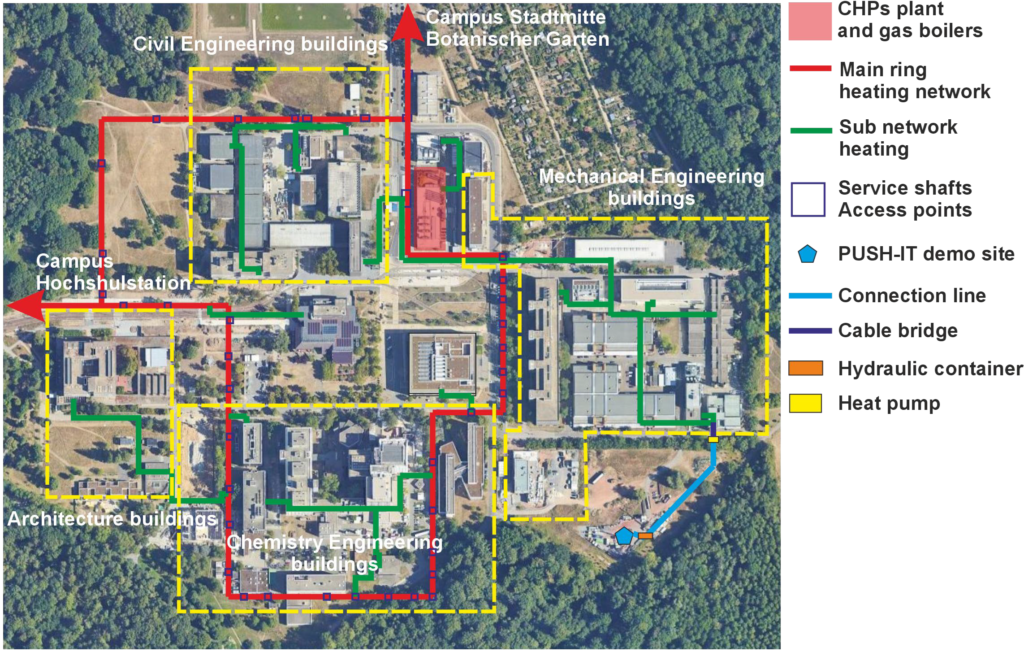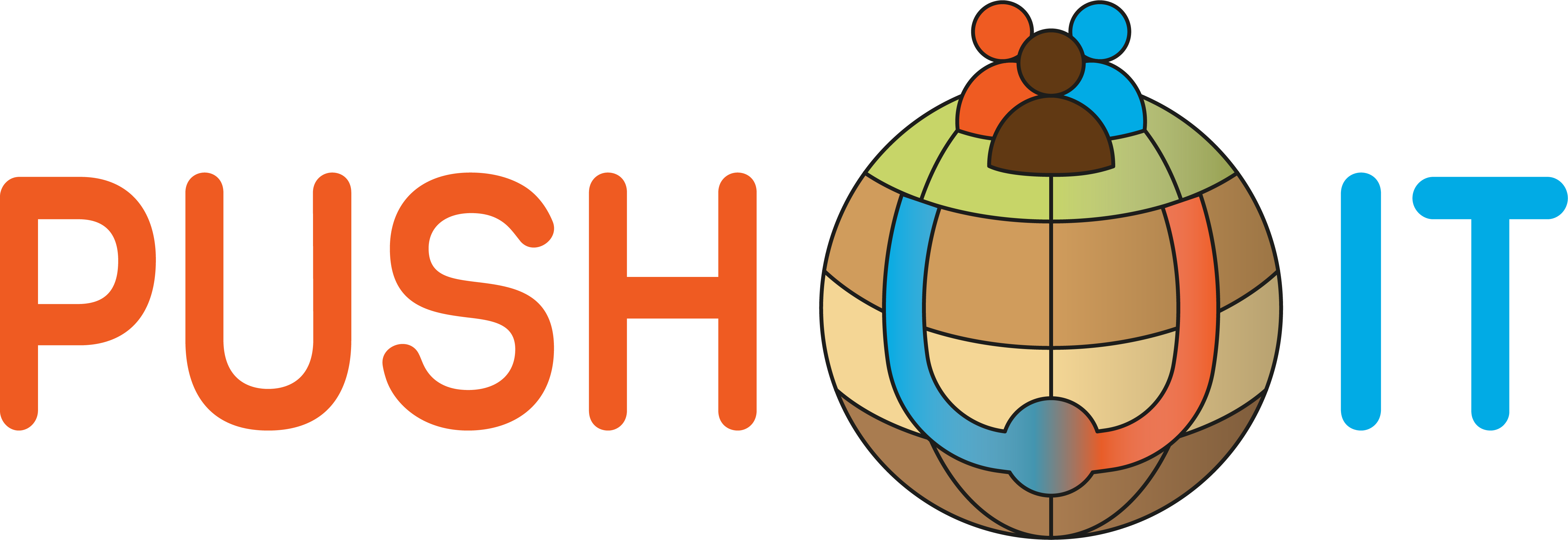An update from the Darmstadt site
At the recent General Assembly in Bochum, the Darmstadt site has given an update of the progress that has been made. This will be discussed, together with a recap of the site’s goals and objectives.
TU Darmstadt is taking steps toward a more sustainable energy future with the implementation of an innovative borehole thermal storage system. This project integrates three deep geothermal boreholes into the university’s district heating network, creating a seasonal energy storage solution that aligns with long-term climate and efficiency goals.

Harnessing the Power of Seasonal Thermal Storage
At the heart of the project is the concept of storing thermal energy during summer and retrieving it in winter. By charging the boreholes with heat in the warmer months and discharging that energy when temperatures drop, the system effectively bridges seasonal energy supply and demand. This approach reduces dependency on conventional heating sources, cuts greenhouse gas emissions, and improves the overall efficiency of the district heating network.
Innovative Infrastructure Using PE Pipes
A key feature of the project is the introduction of a new method for constructing the connection line between the boreholes and the district heating system. TU Darmstadt is testing polyethylene (PE) pipes enhanced with advanced thermal insulation to minimize energy loss during transmission. This technique offers potential advantages in both installation efficiency and long-term operational performance compared to traditional pipe materials.
Current Progress and Achievements
Several foundational phases of the project are now complete. The detailed system design has been finalized, and contracts have been awarded for both the hydraulic container and the construction of the insulated connection line. Tendering for the heat pump is still in progress and expected to conclude soon.
Next Steps in Implementation
With design and procurement stages nearly wrapped up, the project is shifting into its implementation phase. The immediate tasks ahead include:
- Installation of the hydraulic container
- Construction of the insulated connection line
- Charging the thermal storage system during the summer
- Discharging the stored energy during winter
- Comprehensive system evaluation to assess performance and reliability
These steps will be crucial for validating the concept under real-world conditions.
Anticipated Risks and Mitigation
As with any complex energy project, potential risks must be carefully managed. Delays in the delivery of the heat pump remain a concern, as do possible supply chain disruptions or workforce shortages from the project’s contractors. The team is closely monitoring these risks to ensure timely and efficient project execution.

PUSH-IT is a project funded by the European Union’s Horizon Europe research and innovation programme under grant agreement No 101096566.
Funded by the European Union. Views and opinions expressed are however those of the author(s) only and do not necessarily reflect those of the European Union. Neither the European Union nor the granting authority can be held responsible for them.
